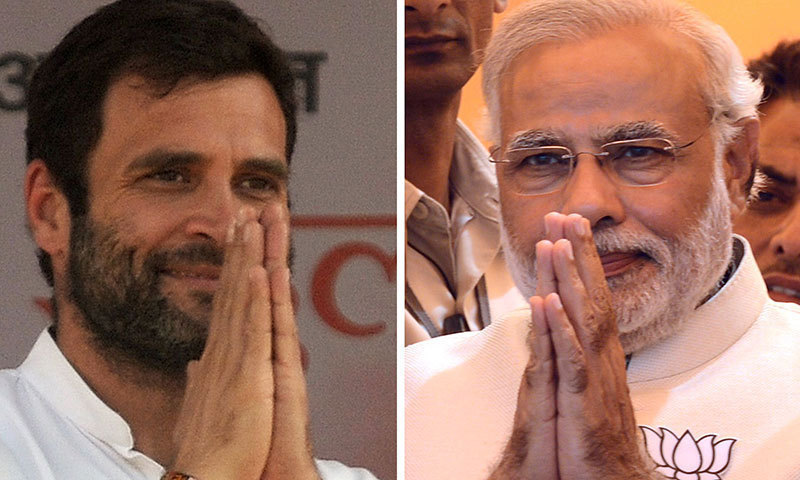India embarked on the second phase of its monumental election, touted as the largest in history, on Friday. Prime Minister Narendra Modi and his rivals are leveraging contentious issues such as taxes, affirmative action, and religious discrimination to intensify their campaigns.
Spanning seven phases, the general elections commenced on April 19 and will conclude on June 1, involving nearly one billion eligible voters. Vote counting is slated for June 4.
Benefiting from his economic policies, welfare schemes, nationalist agenda, and widespread popularity, Modi is vying for an unprecedented third consecutive term. Surveys suggest he is poised to secure a significant majority.
In opposition, an alliance comprising over 20 parties is advocating for increased affirmative action, expanded welfare programs, and an end to what they perceive as Modi’s authoritarian governance.
With a staggering 160 million eligible voters, Friday’s elections will decide 88 seats in the lower house of parliament, which comprises 543 seats. Spread across 13 states and federal territories, this election is significant for the world’s most populous nation. The states of Kerala and Karnataka in the south, along with Rajasthan in the northwest, collectively hold over half of these 88 seats.
As the campaign progresses, the discourse has shifted towards community-centric issues, sparking heated exchanges between Modi and the primary opposition, Congress party. Modi has accused Congress of favoring minority Muslims, aiming to undermine affirmative action, and planning to implement inheritance tax.
In a late-night post on X, Modi asserted, “Congress, which once championed the Constitution, has now been exposed for its hidden agenda.”
Congress has refuted these allegations, asserting that Modi is diverting attention from critical issues such as unemployment, inflation, and rural distress, while instilling fear of losing ground.
In a pre-election video message, Congressman Rahul Gandhi emphasized, “We listened to your concerns and crafted a revolutionary manifesto. While drafted by the Congress party, it embodies your voices.”
Gandhi, a prominent figure within the party and former president of the Congress, is among the 1,200 candidates vying in Friday’s elections. Running for re-election from Wayanad in the Left Front-ruled state of Kerala, he faces opposition from K. Surendran of the BJP and Annie Raja of the Communist Party of India.
In the 2019 elections, Gandhi secured the highest number of votes in Kerala, defeating the CPI candidate. However, he lost his second seat to the BJP in the northern Indian state of Amethi, a stronghold for his family.
Furthermore, the party is expected to fare better in Karnataka, where it only clinched one out of the state’s 28 seats in 2019 but emerged victorious over the BJP in the preceding year’s state elections.
Concerns about voter turnout have arisen due to the summer heat and wedding season in some regions of the country. The Election Commission and political parties are keen to address this issue, as voter turnout dipped to approximately 65% in the first phase of voting from nearly 70% in 2019.
Since then, the election commission has intensified its efforts, calling on citizens to “vote responsibly and proudly”.
Seats up for grabs on second day
Assam: Five seats
Bihar: Five seats
Three seats go to Chhattisgarh.
Jammu and Kashmir: One seat
Karnataka: 14 seats
Kerala: 20 seats
Madhya Pradesh: Six seats
Maharashtra: Eight places
Manipur: Just one seat
Rajasthan: 13 seats
Tripura: One seat
Uttar Pradesh: Eight seats
West Bengal: Three positions
By the conclusion of the second round, voting in Kerala and Rajasthan will be concluded.
Popular candidates running in today’s election
Rahul Gandhi, former leader of the Indian National Congress, the country’s primary opposition party, is contesting for a Lok Sabha seat from Wayanad in Kerala. His main rival is K Surendran, the president of the Kerala BJP.
Shashi Tharoor, a former UN diplomat, writer, and columnist, is contesting for the Congress party in Thiruvananthapuram, Kerala, a seat he has held since 2009. His primary opponent is Rajeev Chandrasekhar, the Minister of Information Technology and Electronics in Modi’s government.
Hema Malini, a renowned Bollywood actress now in politics, is running for reelection as a BJP candidate to represent Mathura in Uttar Pradesh. She has served two terms as the incumbent. Her principal opponent is Mukesh Dhangar, the Congress candidate.










